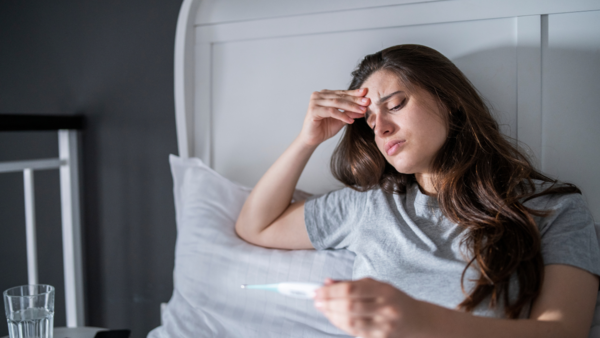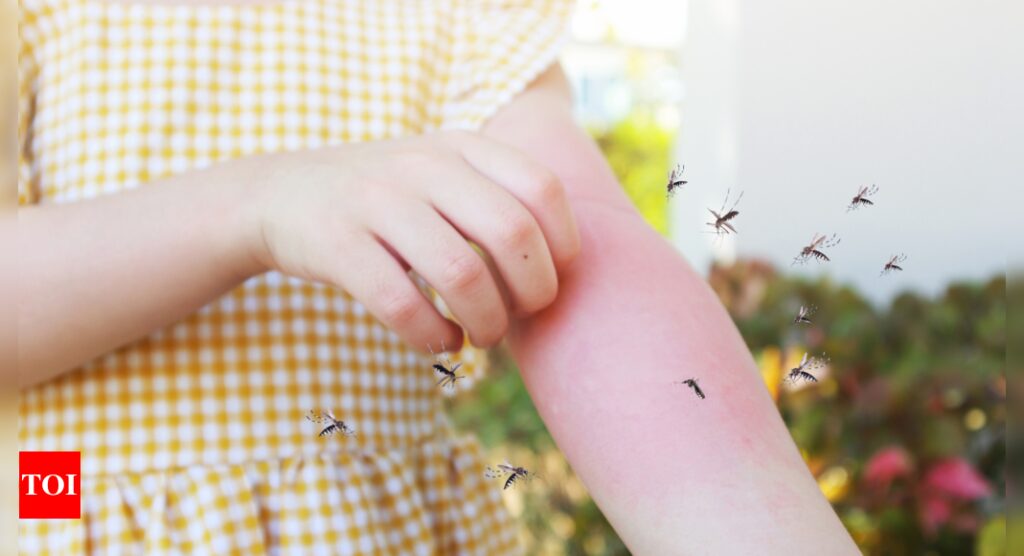[ad_1]
India has witnessed a significant rise in both cases and fatalities from vector-borne diseases across the country – particularly experiencing a surge in dengue cases and related deaths, notes Dr Sachin Shah, Director Neonatology & Pediatric Intensive Care Services, Surya Mother & Child Super Speciality Hospital, Pune.
Dr Tushar Tayal, Consultant, Internal Medicine, CK Birla Hospital, Gurugram, explains, “There are 4 subtypes of dengue virus and a person can become infected with one subtype only once in their life following which they develop immunity for that particular subtype. Subsequent infection with a different subtype increases the risk of severe complications.”
Initial phase, critical period and recovery period
“The initial symptoms are high grade fever, headache, pain behind the eyes, nausea and joint pain which last for approximately 5 days. By the end of this period is when the critical period starts where the BP falls, fluid accumulates in lungs and abdomen and rash develops. Some patients may also show bleeding manifestation. It is extremely important to identify these symptoms and hospitalize the patient urgently as these symptoms may be life threatening. This period is followed by the recovery phase which lasts 3-4 days,” Dr Tayal adds.

Symptoms of dengue fever
“Here are the common symptoms and some tips on how to treat it at home, but please note that severe cases of dengue can be life-threatening, so if you suspect you have dengue, seek medical attention promptly,” says Dr Shuchin Bajaj, Founder Director, Ujala Cygnus Group of Hospitals.
- High fever: Sudden onset of a high fever, often reaching up to 104°F (40°C).
- Severe headache: Intense headaches, usually behind the eyes.
- Pain behind the eyes: Pain and discomfort in the eyes, particularly when moving them.
- Joint and muscle pain: Severe joint and muscle pain, often referred to as “breakbone fever.”
- Rash: A rash that may appear a few days after the fever starts. It’s typically a maculopapular rash, which means red spots or bumps.
- Fatigue: Extreme weakness and fatigue.
- Nausea and vomiting: Nausea and vomiting are common, and sometimes, abdominal pain may occur.
- Mild bleeding: In some cases, individuals with dengue may experience mild bleeding, such as nosebleeds or gum bleeding.
Tips for treatment at home

Dr Manoj Sharma, Senior Consultant, Internal Medicine at Fortis Hospital, Vasant Kunj, explains, “the first step should be to consult a doctor and not to take over-the-counter medications.”
All dengue patients do not require hospitalization, says Dr Tayal. Majority of dengue patients can be managed at home with simple measures:
- Paracetamol tablet 1 gm as and when required for fever and bodyache
- Antiemetic medicines to prevent nausea and vomiting
For initial symptoms that can be easily managed at home with medication and proper rest, Dr Sharma recommends these tips to follow:
- Timely consumption of medication prescribed by a doctor.
- Proper hydration – take ample amounts of water and avoid packed juices.
- Light food like khichdi, dal or properly cooked meals. Avoid salad, raw or half cooked food. Proper food which gives energy like poha, idli, makke ki roti, daliya, banana, lentils, beetroot juice, amla (in raw form or fresh juice), sweet potato, pomegranates, apple, and few nuts are recommended if you have mild symptoms of dengue.
- Proper rest means staying away from mobile and TV. 8 hrs of sleep and rest between meals.
- Dengue will make you weak and it will take time to recover hence you need proper nutrition. Add food that you like but must not be spicy, eat slowly and quantity can depend on your appetite.
Word of caution
Popular home remedies for dengue such as consumption of papaya leaf juice may do you more harm than good.
“Every year we see that people resort to a lot of home measures for increasing platelets such as papaya leaf juice and giloy. Papaya leaf juice is extremely unpleasant in taste and may lead to further vomiting and loose stools which can worsen the underlying dehydration. In a scientific study it was found that papaya juice has flavonoids and antioxidants which are also found in all fresh fruits and vegetables. So instead of drinking papaya juice, we should encourage the patient to have fresh fruits, vegetable soups and coconut water to boost up the immunity,” explains Dr Tayal.
“Given the increase in cases, many people rely on unproven remedies that could be risky and might delay appropriate medical treatment. Every year, we see that people resort to a lot of home measures for increasing platelet count – such as papaya leaf juice and kiwi. Consuming raw papaya leaves or extracts may lead to allergic reactions, gastrointestinal discomfort, or other potential complications. Additionally, dengue fever often causes a reduction in platelet count, which can result in bleeding complications. While some research studies suggest that papaya leaves might have the potential to increase platelet count, depending solely on unverified remedies may carry inherent risks and potentially delay required medical treatment,” adds Dr Shah.
When hospitalization is important
It is important to understand when symptoms can be managed at home and when hospitalization is essential. Dr Sharma warns, “We need to also understand here that after 5-7 days of treatment if your symptoms are not gone and have worsened you need immediate medical attention and may be hospitalized. If you have vomiting more than three times a day, fever is not going down even after taking medication, body ache is worsening and you are feeling dizzy, you need to rush to the nearest emergency. People need to understand that home treatment is effective only if you have mild symptoms. In case of symptoms worsening please correlate and reach the nearest hospital.”
[ad_2]
Source link










More Stories
We can’t wait to face India in the final: Pat Cummins | Cricket News
Railways plans 3,000 additional trains in next 4-5 years to minimise number of waitlisted tickets | India News
Faridabad: Man dies after ‘falling from hotel room window’ while partying with friends